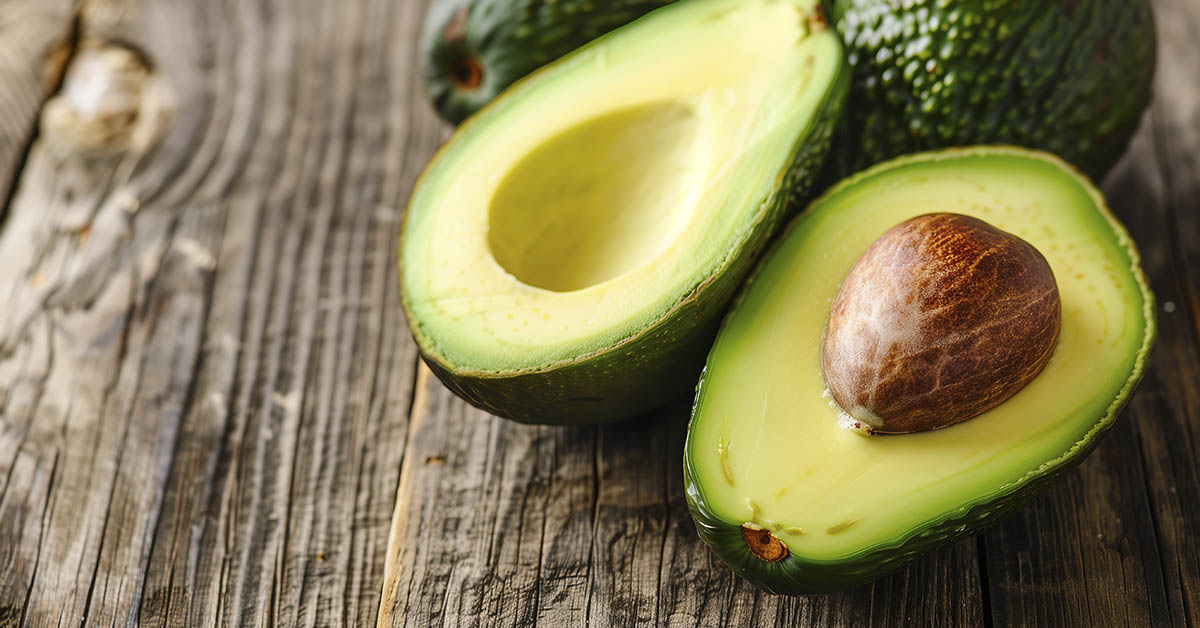Let’s be clear: Inflammation is not inherently bad. It’s a natural healing response to infections and injuries. It comes in the form of symptoms like swelling, pain, heat, and redness, and usually heals on its own. When inflammation is temporary, it’s healthy and essential. But when it becomes chronic or severe, it can contribute to illnesses like cancer, arthritis, type 2 diabetes, and more. This kind of inflammation can come from environmental toxins, chronic stress, lingering viruses, aging. It can also come from a diet full of red meat, deep-fried foods, processed sugars, trans fats, and white flour. Meanwhile, consuming a diet rich in anti-inflammatory foods can help reduce levels of chronic inflammation. So here are some items to add to your grocery list.
Nuts
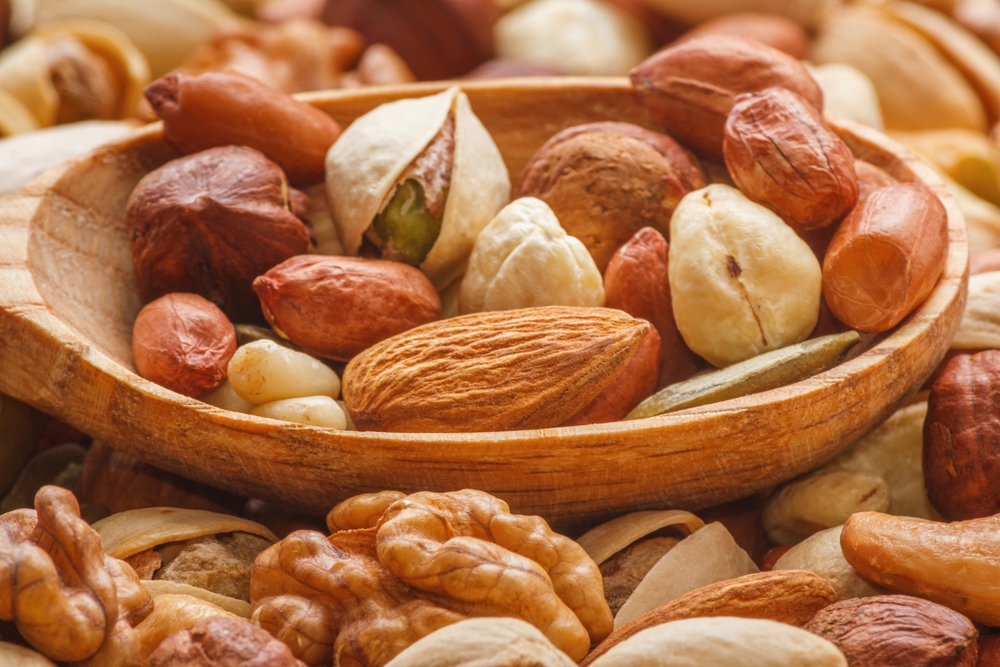
“Nuts contain many micronutrients—like proanthocyanidins, flavonoids, and stilbenes—as well as omega-3 fatty acids, all of which can help reduce inflammation,” says Maddie Pasquariello, MS, RDN, to Martha Stewart. They also have phytosterols that may inhibit inflammation in the body, according to a 2023 study. “Almonds, pistachios, macadamia nuts, and pine nuts are especially high in these [phytosterols],” says Pasquariello.
Chia, Flax, and Hemp Seeds
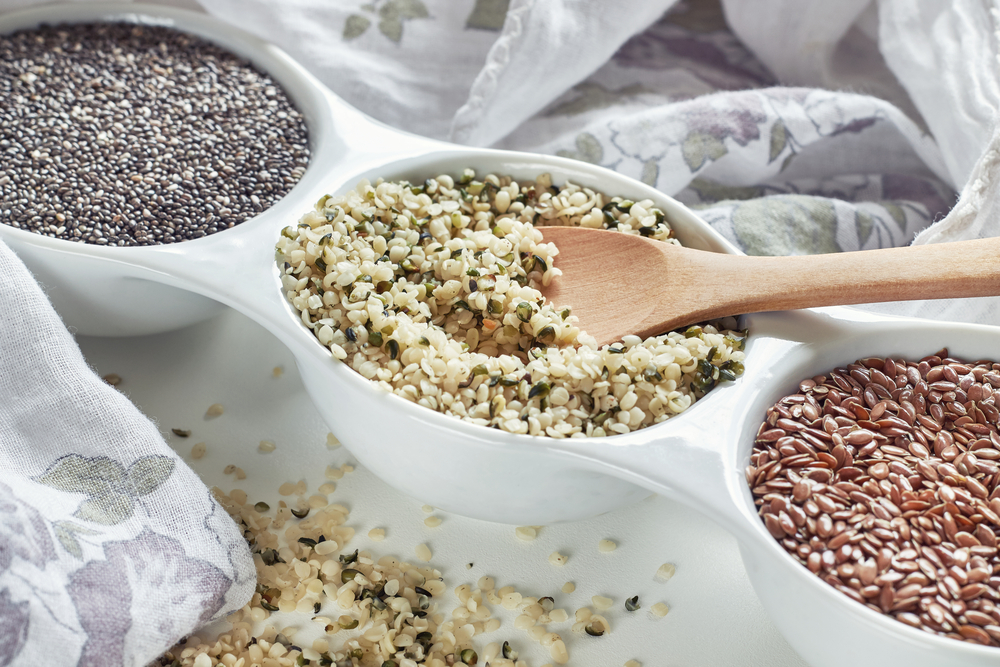
These seeds are plant-based sources of omega-3 fatty acids, which come with anti-inflammatory properties, according to John Hopkins Medicine. This nutrient helps keep cells fluid instead of growing rigid, and aids healthy cell function. A 2019 study found an association between omega-3s and reduced levels of inflammatory biomarkers that contribute to an increased risk of type 2 diabetes and heart disease. Chia, flax, and hemp seeds can be subtley added to dishes like granola, oatmeal, smoothies, and soups. Additionally, ground flax seeds can be used as an egg substitute in baked goods.
Fatty Fish
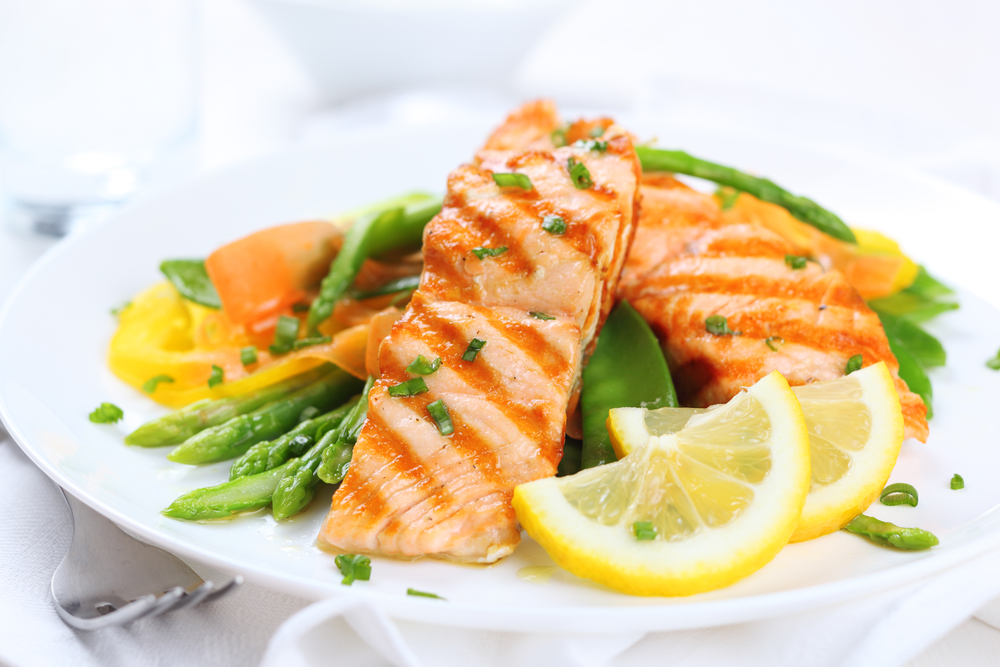
Vitamin D deficiency is widely common, especially in areas with limited sunshine. It can be difficult to consume enough of this nutrient in diet alone because few foods contain it. However, deficiency is linked to an increased risk of infections, heart disease, and auto-inflammatory conditions. “Many people are surprised to hear that vitamin D acts as a hormone in the body and plays a role in many aspects of health, including immunity and inflammation,” says Diana Mesa, RDN, CDCES, owner of En La Mesa Nutrition, to Eating Well. One good sources is fatty fish, such as salmon, mackerel, and sardines. (Other sources of vitamin D include egg yolks, red meat, liver, and fortified foods like plant-based milks and cereals.) Additionally, fatty fish is famously high in omeg-3 fatty acids, which can also lower inflammation in the body.
Dark Chocolate

Dark chocolate (that’s at least 70% cocoa) contains many healthful minerals, like iron, zinc, magnesium, and antioxidants. As a result, cocoa has been linked to health benefits including reduced inflammation, fewer free radicals, lowered blood pressure, and increased microbiome diversity. Dark chocolate also contains less sugar compared to milk chocolate, so it may be an acquired taste for those accustomed to candy bars.
Ginger
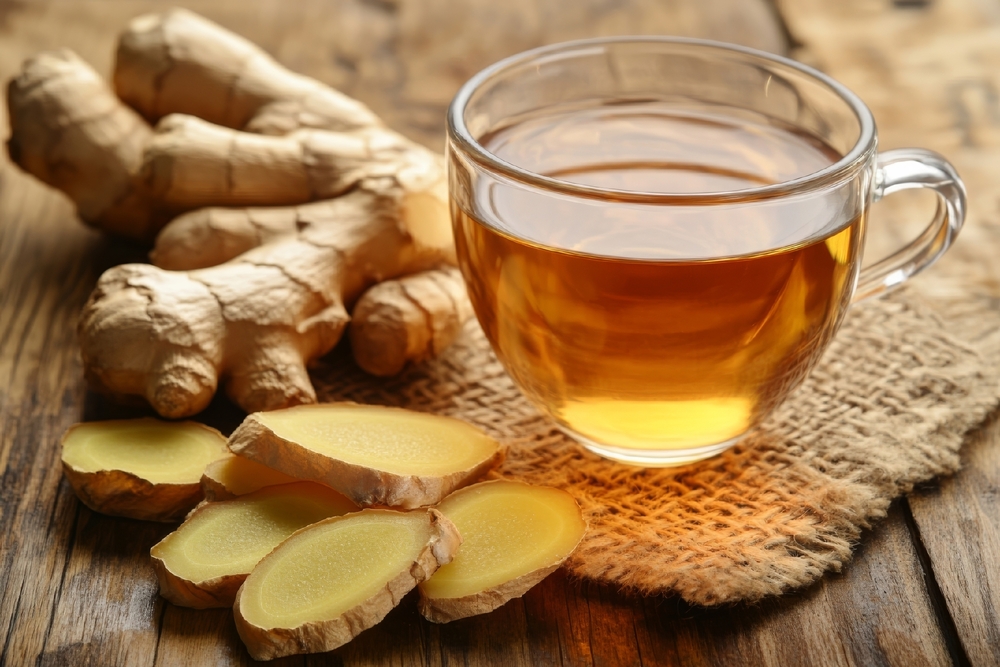
Gingerol is the phytochemical compound found in ginger responsible for the spicy flavor. I also has another perk. “Ginger is not just for an upset stomach. Ginger is also known to help decrease inflammation,” says Zariel Grullón, RDN, a registered dietitian at Your Latina Nutrition. “In studies, it has been shown to reduce inflammatory markers such as C-reactive protein.” Research shows the bioactive compounds in ginger can help inhibit inflammation. However, more studies are needed to determine if eating it can treat conditions like rheumatoid arthritis.
Read More: How an Anti-Inflammatory Diet Could Help With Arthritis Flair-Ups
Cruciferous Vegetables
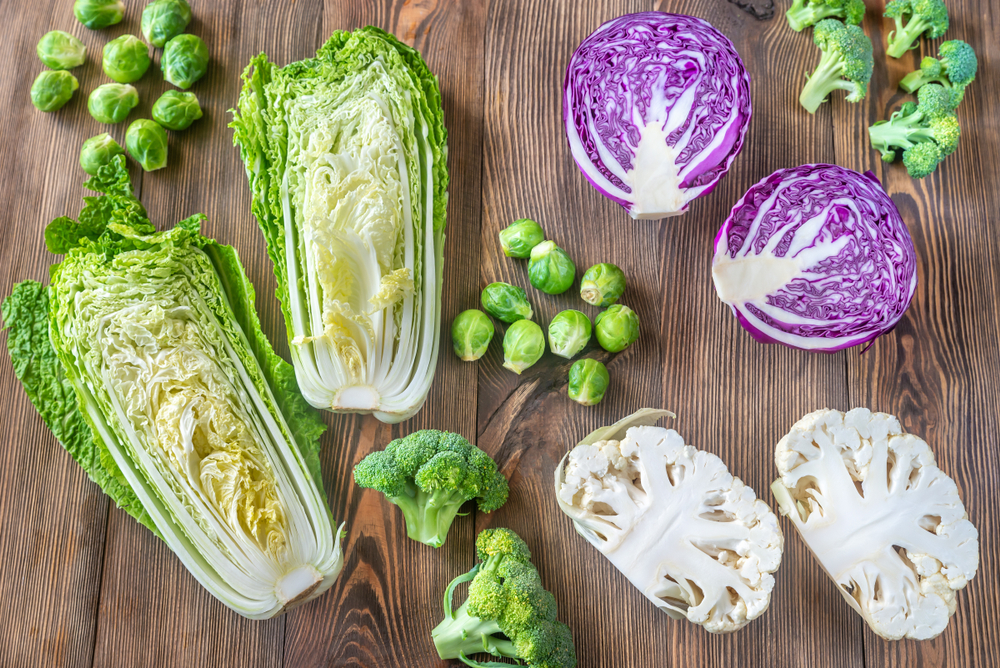
Cruciferous vegetables contain essential vitamins and minerals, including fiber, which is famously good for digestion but it does so much more. “Not only does fiber feed the beneficial bacteria in our gut, it also helps to decrease inflammation by decreasing the inflammatory marker C-reactive protein,” says Grullón. “…fiber-rich foods like fruits and vegetables come with the added benefit of being rich in antioxidants, which also play an essential role in decreasing inflammation.” Cruciferous vegetables include broccoli, cauliflower, Brussel sprouts, cabbage, and leafy greens.
Green Tea
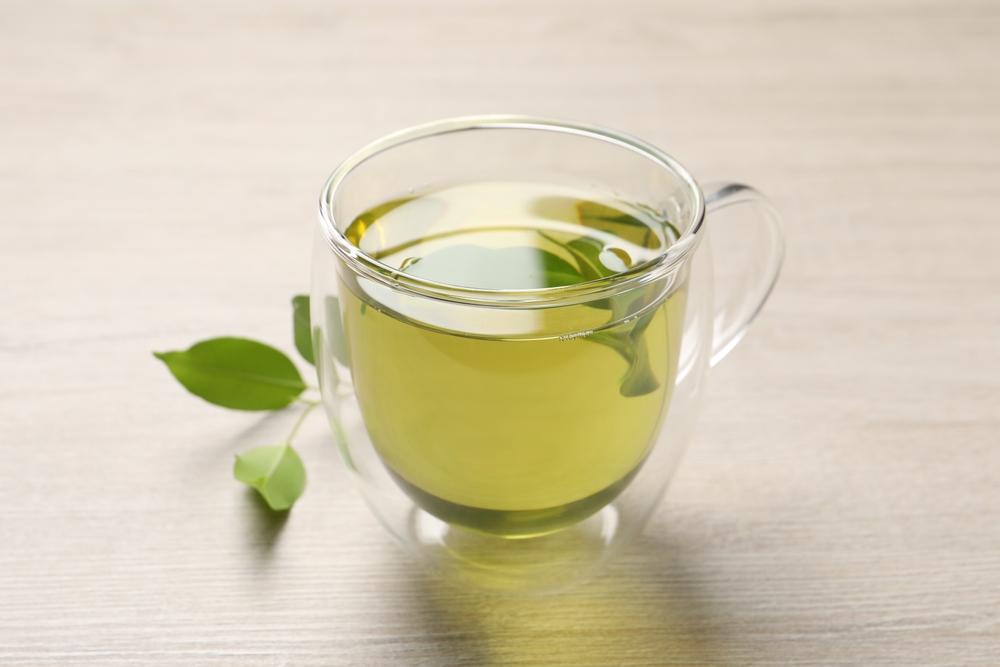
Green tea is rich in flavonoids that act as antioxidants to reduce inflammation caused by cell-damaging free radicals, says a 2022 review in the journal Food Science and Human Wellness. Quercetin is one kind of flavonoid present in green tea, and it comes with additional health benefits such as easing allergy symptoms and reducing blood pressure. Additionally, the L-theanine in green tea can help ease stress and anxiety, which contributes to raised blood pressure and poor sleep.
Olive Oil

There’s no true “anti-inflammatory diet” but many experts recommend the Mediterranean diet because it includes many anti-inflammatory foods, like olive oil. It contains antioxidants, namely oleocanthal, which has a similar effect on the body as ibuprofen, the over-the-counter painkiller that reduces inflammation, says a review in the journal Current Pharmaceutical Design. Moreover, oleocanthal can mitigate oxidative damage cause by free radicles. You don’t need to be on the Mediterranean diet to incorporate more olive oil into your diet.
Turmeric
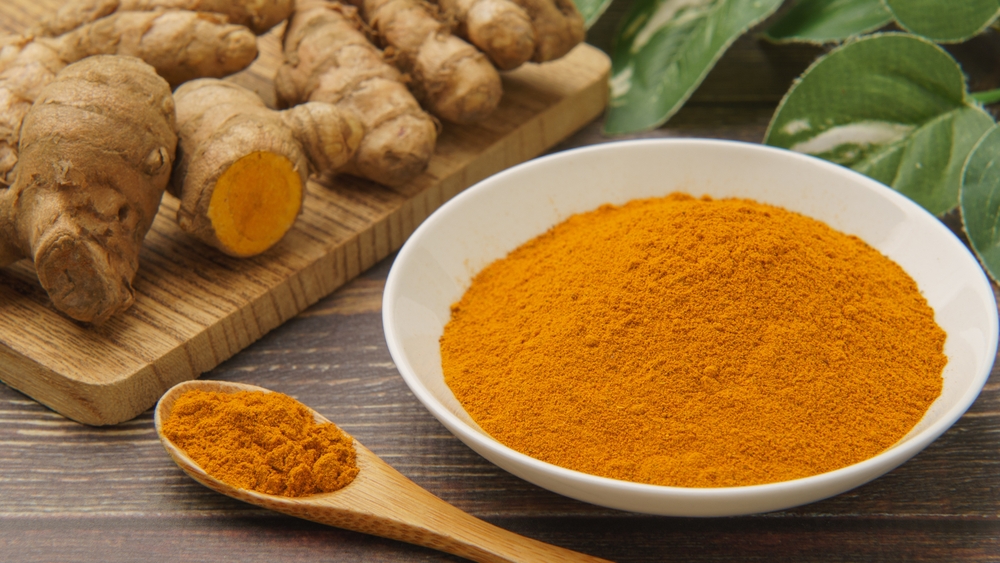
Turmeric’s distinct golden color comes from curcumin, which also contains many health benefits. “Curcumin, an active component in turmeric, has potent anti-inflammatory effects, as it fights oxidative stress in the body,” says Kaytee Hadley, M.S., RDN, a functional medicine dietitian and founder of Holistic Health and Wellness. Research has begun to link curcumin with managing pain from osteoarthritis, according to Harvard Health, but more studies are needed to fully understand its potential and determine proper dosages. In the meantime, it’s a delicious spice to enjoy in soups, stews, rice dishes, and tea. “To best absorb this nutrient, pair your curcumin supplement or turmeric spices with black pepper or healthy fats like olive oil, nuts or avocado,” says Hadley.
Pumpkin seeds
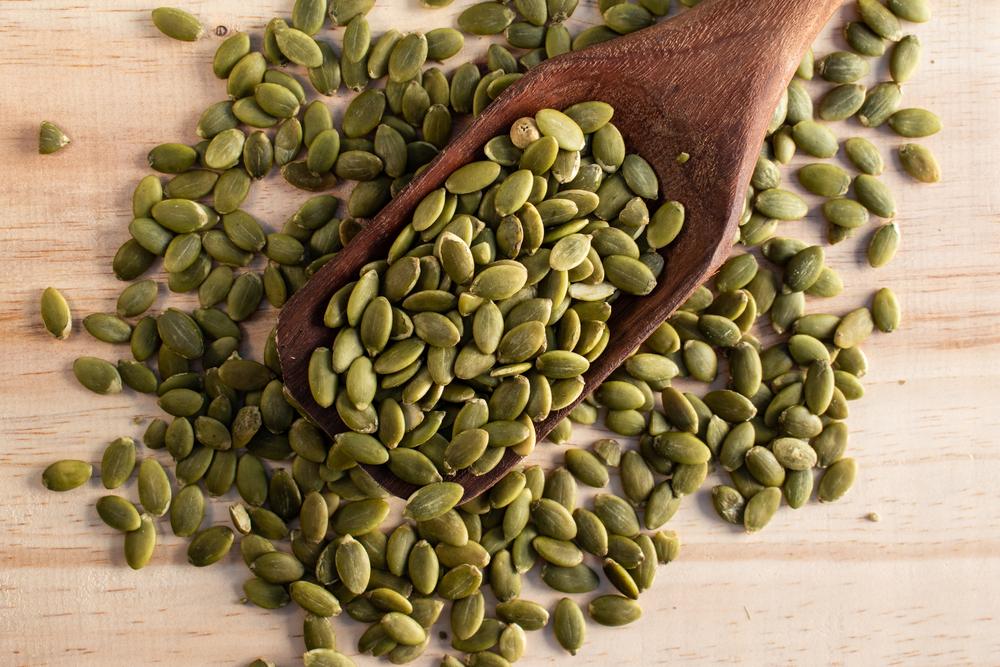
Pumpkin seeds are full of vital nutrients including fiber and protein, but they are notably rich in magnesium. “Magnesium is essential to over 600 enzymatic reactions in our body, which means we need it to do a lot of things for our body,” says Grullón. This includes regulation of the metabolism and immune system. Research has linked magnesium deficiency to higher levels of inflammation in the body. (Other sources of magnesium are salmon, spinach, chia seeds, almonds, and black beans, according to the NIH.) Not only can magnesium lower inflammatory biomarkers, it can help promote restful sleep and reduce anxiety symptoms. Both of these things are key to reducing chronic stress that contributes to high inflammation levels. In general, addressing life’s main stressors and practicing health coping methods can greatly reduce inflammation and prevent or manage related diseases.
Read More: Dietician Drinks The Same Anti-Inflammatory Drink Every Time They Get Sick
